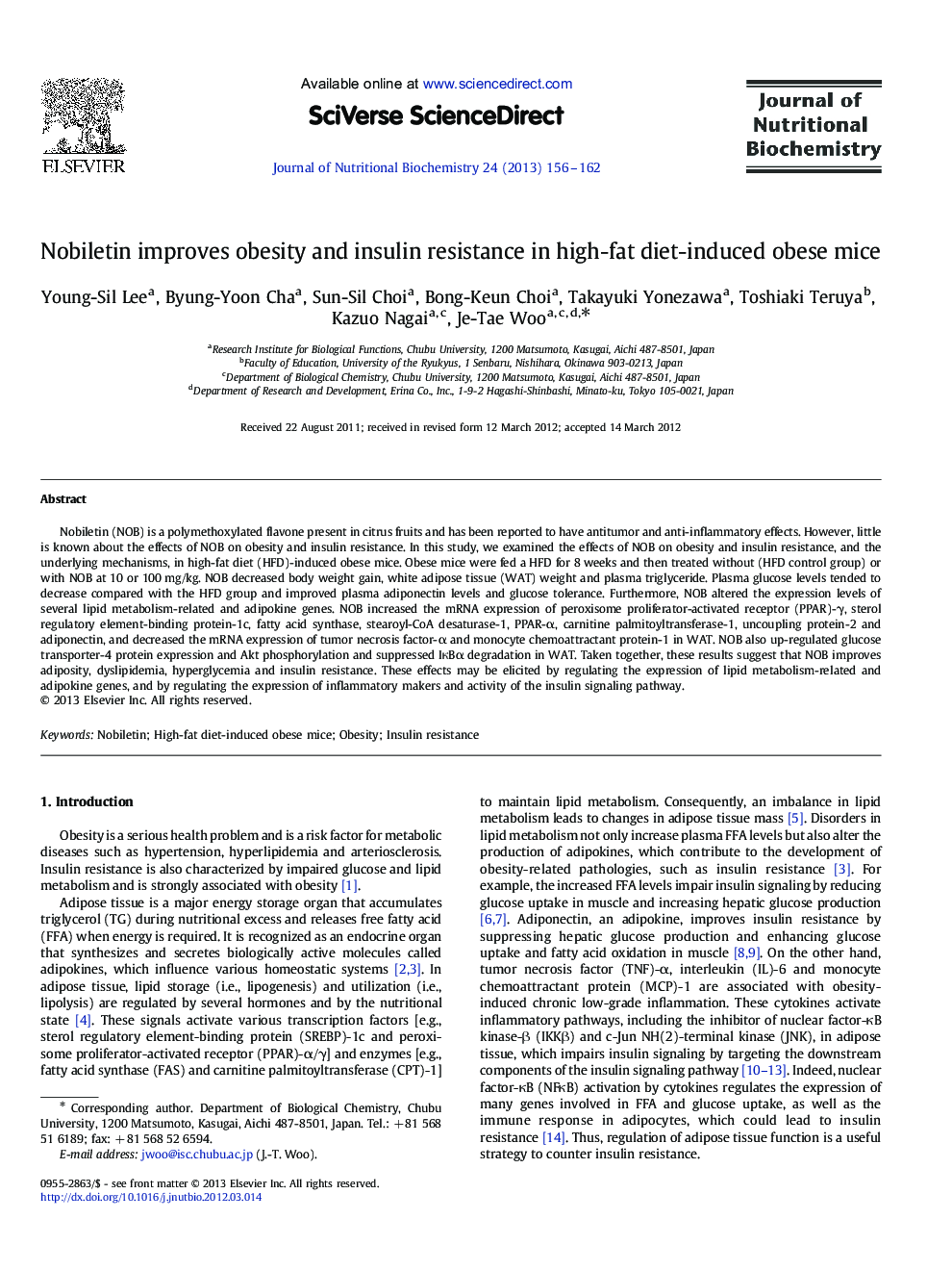| Article ID | Journal | Published Year | Pages | File Type |
|---|---|---|---|---|
| 8337530 | The Journal of Nutritional Biochemistry | 2013 | 7 Pages |
Abstract
Nobiletin (NOB) is a polymethoxylated flavone present in citrus fruits and has been reported to have antitumor and anti-inflammatory effects. However, little is known about the effects of NOB on obesity and insulin resistance. In this study, we examined the effects of NOB on obesity and insulin resistance, and the underlying mechanisms, in high-fat diet (HFD)-induced obese mice. Obese mice were fed a HFD for 8 weeks and then treated without (HFD control group) or with NOB at 10 or 100 mg/kg. NOB decreased body weight gain, white adipose tissue (WAT) weight and plasma triglyceride. Plasma glucose levels tended to decrease compared with the HFD group and improved plasma adiponectin levels and glucose tolerance. Furthermore, NOB altered the expression levels of several lipid metabolism-related and adipokine genes. NOB increased the mRNA expression of peroxisome proliferator-activated receptor (PPAR)-γ, sterol regulatory element-binding protein-1c, fatty acid synthase, stearoyl-CoA desaturase-1, PPAR-α, carnitine palmitoyltransferase-1, uncoupling protein-2 and adiponectin, and decreased the mRNA expression of tumor necrosis factor-α and monocyte chemoattractant protein-1 in WAT. NOB also up-regulated glucose transporter-4 protein expression and Akt phosphorylation and suppressed IκBα degradation in WAT. Taken together, these results suggest that NOB improves adiposity, dyslipidemia, hyperglycemia and insulin resistance. These effects may be elicited by regulating the expression of lipid metabolism-related and adipokine genes, and by regulating the expression of inflammatory makers and activity of the insulin signaling pathway.
Keywords
Related Topics
Life Sciences
Biochemistry, Genetics and Molecular Biology
Biochemistry
Authors
Young-Sil Lee, Byung-Yoon Cha, Sun-Sil Choi, Bong-Keun Choi, Takayuki Yonezawa, Toshiaki Teruya, Kazuo Nagai, Je-Tae Woo,
